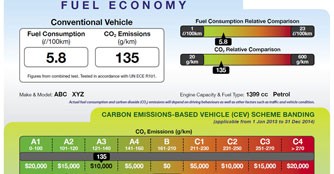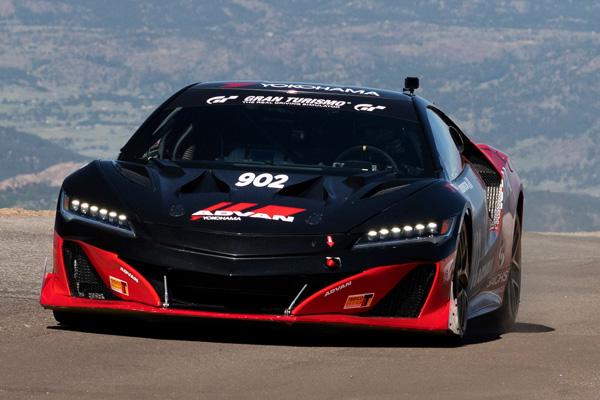Study reveals fuel efficient cars to be worth more
26 Feb 2013|5,841 views
According to a study by two economists from the Ministry of Trade and Industry, fuel efficient cars are generally costlier than less economical models but the potential savings at the pumps make them worth the higher purchase price. The paper, entitled "The Costs And Benefits Of Fuel-Efficient Cars: How High Are The Returns?", was released last Friday.
The study found out that buyers tend to fork out 0.6 percent more for every 10 percent improvement in efficiency. But this is cancelled out by the savings over five years of driving with an annual average mileage of 19,100km, which works out to about $540 in real terms.

The programme, which started in January this year, grants rebates of up to $20,000 for cars that emit no more than 160g/km of carbon dioxide and the economists found that the CEVS boosts the returns on investing in a fuel efficient car by almost 10 times.
Motor industry players have noticed that buyers are becoming more concerned about fuel efficiency. They say one reason is rising pump prices. The cheapest petrol is now $2.20 a litre before discount - 40 percent higher than four years ago.
Motor Traders Association Vice President Glenn Tan said, "Now that a car costs so much, people have become more conscious of running costs. Every little bit contributes to total ownership cost."
Car dealers said while the CEVS has offered buyers an incentive to opt for fuel efficient cars, the rebate of up to $20,000 is actually smaller in real life. This is because the tax cut translates to a smaller scrap value when the vehicle is finally de-registered.
According to a study by two economists from the Ministry of Trade and Industry, fuel efficient cars are generally costlier than less economical models but the potential savings at the pumps make them worth the higher purchase price. The paper, entitled "The Costs And Benefits Of Fuel-Efficient Cars: How High Are The Returns?", was released last Friday.
The study found out that buyers tend to fork out 0.6 percent more for every 10 percent improvement in efficiency. But this is cancelled out by the savings over five years of driving with an annual average mileage of 19,100km, which works out to about $540 in real terms.
Using a statistical model that filters out various attributes that might influence a vehicle's price, Senior Economists Kenny Goh and Huang Jianyun of the Ministry's Economics Division, also suggested that buyers would be given a strong incentive to switch to fuel efficient models by the new Carbon Emissions-based Vehicle Scheme (CEVS).
The programme, which started in January this year, grants rebates of up to $20,000 for cars that emit no more than 160g/km of carbon dioxide and the economists found that the CEVS boosts the returns on investing in a fuel efficient car by almost 10 times.
Motor industry players have noticed that buyers are becoming more concerned about fuel efficiency. They say one reason is rising pump prices. The cheapest petrol is now $2.20 a litre before discount - 40 percent higher than four years ago.
Motor Traders Association Vice President Glenn Tan said, "Now that a car costs so much, people have become more conscious of running costs. Every little bit contributes to total ownership cost."
Car dealers said while the CEVS has offered buyers an incentive to opt for fuel efficient cars, the rebate of up to $20,000 is actually smaller in real life. This is because the tax cut translates to a smaller scrap value when the vehicle is finally de-registered.
Latest COE Prices
April 2025 | 2nd BIDDING
NEXT TENDER: 07 May 2025
CAT A$99,500
CAT B$117,003
CAT C$65,001
CAT E$118,001
View Full Results Thank You For Your Subscription.


















